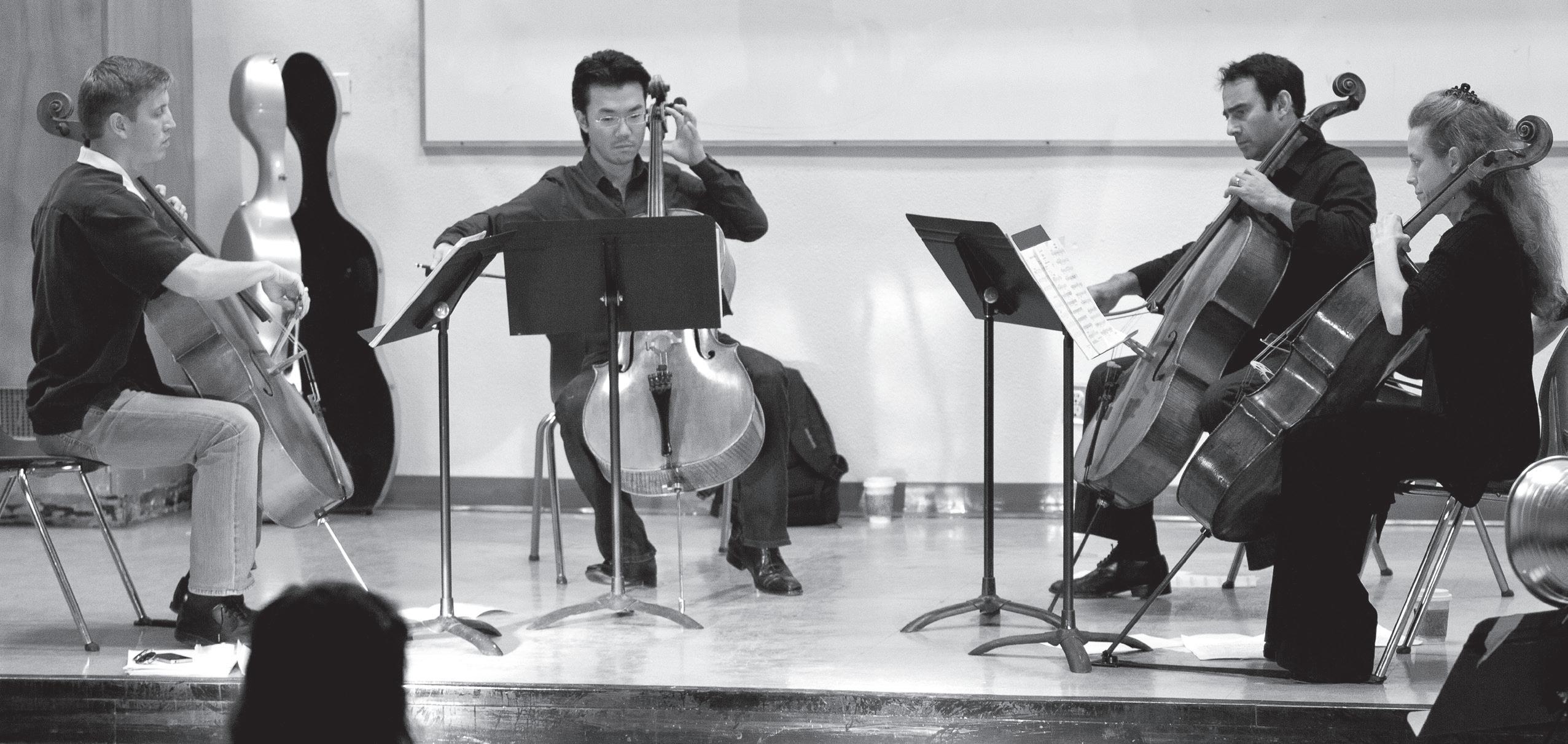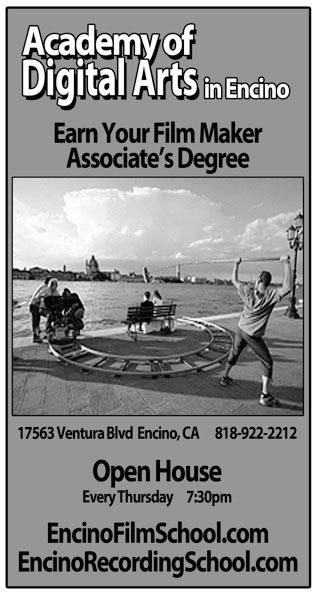
2 minute read
Cellists showcased at free concert Quartet brings its classical string air to life for students and faculty
time, then I never would have gotten the experience I have beyond it.”
For such intensive work, Jun isn’t even the lead cellist of the quartet.
Advertisement
Joon-Sung Jun, a member of the Los Angeles Cello Quartet that played a free show at Pierce College for students on Sept. 27, 2012, had a choice to make some years ago. He could serve a two-and-ahalf year tour in the South Korean army or claim first place in an international cello competition. He chose the latter.
“I practiced eight hours a day for six months,” Jun said. “I got second place.”
So, Jun tried again.
“I don’t want to say how much I practiced, but more than eight hours a day for six months,” Jun said.
Aside from winning that next competition and his pass on enlistment, he’s taken first place in no less than 10 other competitions around the planet for his cello playing.
Jun is also a cello professor at California State University, Long Beach, a chairperson at Shepherd University in West Virginia, and, according to his page on CSULB’s web site, he’s also played in a slew of philharmonics and symphonies.

Jun is grateful for the endless hours he spent woodshedding, and even for the outcome of that first competition.
“I’m really glad I got second place,” Jun said. “If I won the first
That’s left up to Ruslan Biryukov, another member of the quartet and founder of the Glendale Philharmonic Orchestra.
“To say his performance was incredible would not do it justice,” review site ReviewPlays.com said of one of Biryukov’s recent performances.
The musicians were aware that the majority of their audience wasn’t too familiar with classical music, especially cello quartets, which James Bergman, a music professor at Pierce, called “a rare, special thing.”
At the performance, Biryukov and his three counterparts swayed back and forth with their facial expressions dancing in time, hinting at the quiet, soulful conversations they were seemingly having with their centuries-old cellos.
“It’s a collaborative effort,” Biryukov said. “We laugh. We cry.”


Hope Easton, another member of the quartet, a Fulbright Scholar and graduate of the New England Conservatory, who has played on Celebrity Rehab and in Carnegie Hall, chimed in.
“We kill each other,” said Easton.
When the music begins, the four individual musicians meld into a single, powerful wall of harmony, according to Biryukov.
“It all happens together,” said Biryukov.
Garik Terzian, a member of the quartet who has performed extensively throughout the former Soviet Union, United States, Mexico, Spain, Ireland and the Czech Republic, asked Easton if she would ever consider selling her cello, a one-piece Landolphi made in 1776.
“I sold it once, then I bought it back,” Easton said.
Biryukov shared some thoughts on the idea that his audience, who didn’t all seem to be able to tell when to clap, might be more familiar with the radio than with Italian composer Luigi Forino. Biryukov said he believed most people couldn’t answer seemingly simple questions like, “Do you know what music is? Do you know what art is?”
“Music is the art of the symmetry of sound within the timing








